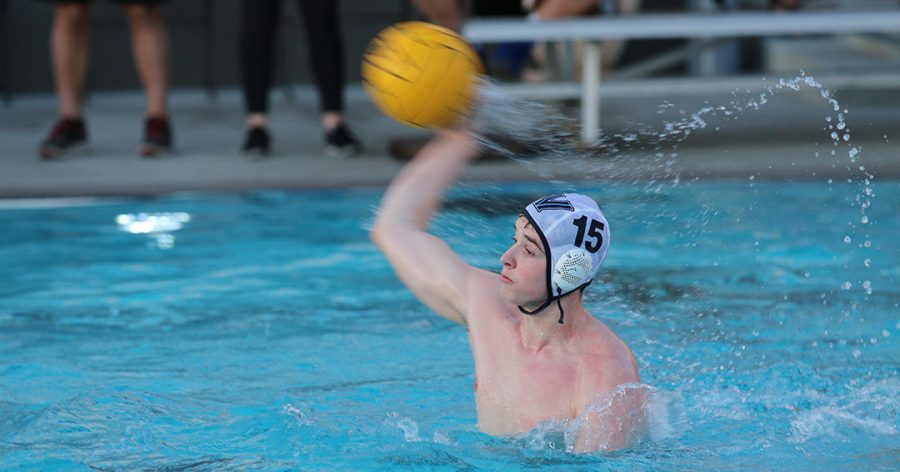Water Polo Looks to Replicate Last Year’s Success
Courtesy of Collegiate Water Polo Association
Water Polo Looks to Replicate Last Year’s Success
September 24, 2019
With four scheduled practices a week and a head coach with 36 years of experience, it seems somewhat misleading to call Villanova’s men’s water polo team a club sport. Then again, that is its official title, and has been since 1998 when the team transitioned from varsity to club for Title IX compliance reasons.
The legislation had similar effects at universities across the country and, as a result, just 22 schools maintain Division I varsity men’s water polo teams today. The collegiate club water polo scene, consequently, is a competitive one.
Despite possessing a small roster (currently 12 players), the Wildcats have proven themselves to be one of the country’s top programs and have enjoyed particular success in recent years.
Last fall, after a thrilling double overtime win against perennial powerhouse Penn State in the Mid-Atlantic Division Championship, Villanova qualified for the National Championship for the first time in seven seasons. There, the team took 12th place out of 16 teams, going 1-3 in four games.
This season, the Wildcats are ranked 19th in the Men’s Collegiate Club Top 20 and have started the year 1-0, beating the University of Pennsylvania, 18-7, in the season opener.
The team’s results can be attributed, in part, to their dedicated head coach, Dan Sharidin. Sharidin, who has been coaching the team since 1983 when it was still a varsity sport, gives Villanova a distinctive edge on their competition, most of which is without a coaching figure.
“It’s a big advantage because obviously [Sharidin] knows a lot about water polo,” Greg King, a junior economics major from Bethesda, Md., said. “It’s great for player IQ and it gets us in the pool and gets us to actually work somewhat hard unlike a lot of the other teams we play.”
Motivating others has long been a strong point for Sharidin. While he was attending West Virginia University, Sharidan started a water polo team at the school by buying beers for students on the condition that they would come to practice. West Virginia’s club water polo team remains active to this day.
While he no longer uses brews as bribes, Sharidan’s ability to lead and inspire has served him well at Villanova. His passion for the sport and dedication to his team is a large part of what has allowed the Wildcats to compete against schools with much larger programs, such as the aforementioned Penn State.
“It’s a pretty cool David and Goliath type thing,” Stephen Giannella, a senior theology major from Villanova, Pa., said. “When you look at Penn State’s team, they have like 200 kids try out, so they actually have a full team of 20 kids who are really good at Water Polo and then a B team as well. It’s going to come down to our coaching versus their raw talent.”
While Giannella’s assessment is not inaccurate, Villanova possesses its fair share of talent too. Most of the team, like King, played water polo in high school. There are some, however, such as Giannella, who only took up the game in college, capitalizing on the fact that the club’s only requirement is, “the ability to swim.”
“I swam all my life but decided that swimming wasn’t where I wanted to go anymore,” Giannella, said. “Since I did swim, water polo really wasn’t that hard to pick up.”
Both King and Giannella are among those returning from last year’s national championship qualifying team. In fact, there was not a single senior on last year’s roster, meaning the entire squad is back for the 2019-2020 season. Given their previous results, expectations are understandably high for this group.
“[Making it to nationals] is a realistic goal for us this year,” Giannella said. “It’s just [about] staying focused all year. In terms of our division, our toughest game by far is going to be Penn State, and the game that really matters against Penn State isn’t until the very last game, so it’s staying focused from here until then.”
This year’s Mid-Atlantic Division Championship is set for Nov. 9-10 at Penn State University. The National Collegiate Club Championship will take place later that same month at the University of Pittsburgh.


